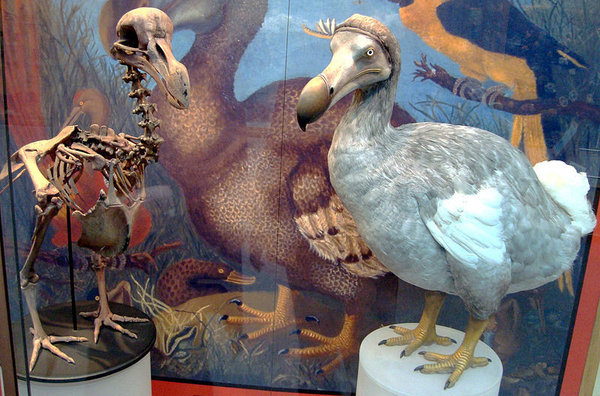The cost of not destroying our planet
Every year eight millions of tons of plastic are dumped into our seas which some claim already have more plastic in them than fish. The entire ecosystem is destroyed when a trawler uses drag-nets, every day forests are cut down, unique species are lost before they are encountered, new man-made crises see thousands of children dying every day before they have had the chance to live one single day of their lives.

Every year three hundred million tons of plastic are produced, half of which is for single-use containers, be these bags or bottles or cartons, so 150 million are eventually cast out. Five hundred billion plastic bags are bought or given away every year, having a working life of a quarter of an hour.
Financing the projects is easy
Over one trillion dollars are spent per annum by NATO countries alone on military spending, in fact the figure is one point two thousand billion dollars per year, each and every year. So in answer to the question, how to finance projects, here is your reply.
In human terms, five point six million children under five die every year, mostly from preventable causes. 7,000 newborn babies die every single day - 2,455,000 every year.
Apart from the human catastrophes looming around us, the air, soil and oceans are polluted in some places almost beyond repair, requiring millions of years to recover. Some species will not, because they are extinct. The number of species disappearing before we have even discovered them is estimated at up to 100,000 species each and every year and this is in the vast majority of cases caused by the hand of Humankind. There are 41,415 species on the IUCN Red List, 16,306 classified as Endangered.
Not only the animals and plants but also the land they stand on and grow in are our victims: acid rain, urban runoff, air pollution caused by gases from industry and vehicle exhausts all find their way into the soil, into the water courses and eventually into the sea, which has increased in acidity by 26 per cent over the last two centuries.
The hand of Humankind in global warming is denied by some, too selfish to bear the cost of reducing their own emissions and breaching treaties they have signed but eventually the ball will stop at everyone's feet as ocean levels rise, polar ice caps melt, the polar bear disappears along with the Arctic Fox, as seaside cities are swamped under water and as unnatural flood and drought cycles devastate vast swathes of territory.
This in turn will force ever more people to flock to the cities from the countryside, making essentials, like water,scarce as Humankind consumes more than the planet can yield in an unsustainable and constant drain on the Earth's resources. As a result Humankind will practice ever more intensive agriculture with antibiotics, fertilizers, pesticides and insecticides and other pollutants exhausting the soil and eventually rendering it barren. These substances will also create cycles of extinction as species feeding on the essential fungi and microbes die out and eventually out plant life will cease to be pollenated.
While we devastate and reap more than we sow on one hand, on the other we pour toxic wastes into the oceans and into landfills, sometimes paying poorer countries to accept dangerous levels of hazardous substances. The bottom line is that as we lose biodiversity, with every species that dies, the Grim Reaper gets one step closer to home. If Humankind is indeed a selfish creature which is incapable of living in balance with the ecosystem (some may question whether we belong here in the first place, and certainly whether we are welcome) then perhaps this is the only argument that will work: do something or die.
Ask the coral reefs
Ask the coral reefs, ask the animals wandering around desperately trying to find a mate because they are the last ones of their species, being poached to extinction or forced from their habitats or falling burnt from trees because some bastard has set fire to the forest to plant date palms or to create arable land.
Sitting here writing about this may raise public awareness; as regards what will solve the problems is making it attractive to people or companies to find more sustainable ecological means of managing resources in a way that does not destroy our planet and which at the same time rejuvenates it, saving our remaining species and making sure others are not forced into extinction before we discover them. In 1980 in Panama, a study of nineteen trees found 1,200 species of beetle, eighty per cent of them totally unknown. So every time we cut down a tree or burn a forest...imagine if just one of these species may have carried the cure for cancer. We will never know, will we?
The Human Being is as welcome on Earth as a piece of excrement lying on the dinner table on a silver platter, as a festering carbunkle on the cheek of a top model, as welcome as a serial pedophile at a kindergarten birthday party.
What are the pressing ecoological/environmental issues in YOUR country? What is YOUR Government doing about these issues? If nothing, then you know who not to elect next time around.
Timothy Bancroft-Hinchey
Pravda.Ru
Twitter: @TimothyBHinchey

*Timothy Bancroft-Hinchey has worked as a correspondent, journalist, deputy editor, editor, chief editor, director, project manager, executive director, partner and owner of printed and online daily, weekly, monthly and yearly publications, TV stations and media groups printed, aired and distributed in Angola, Brazil, Cape Verde, East Timor, Guinea-Bissau, Portugal, Mozambique and São Tomé and Principe Isles; the Russian Foreign Ministry publication Dialog and the Cuban Foreign Ministry Official Publications. He has spent the last two decades in humanitarian projects, connecting communities, working to document and catalog disappearing languages, cultures, traditions, working to network with the LGBT communities helping to set up shelters for abused or frightened victims and as Media Partner with UN Women, working to foster the UN Women project to fight against gender violence and to strive for an end to sexism, racism and homophobia. A Vegan, he is also a Media Partner of Humane Society International, fighting for animal rights. He is Director and Chief Editor of the Portuguese version of Pravda.Ru.
Subscribe to Pravda.Ru Telegram channel, Facebook, RSS!


